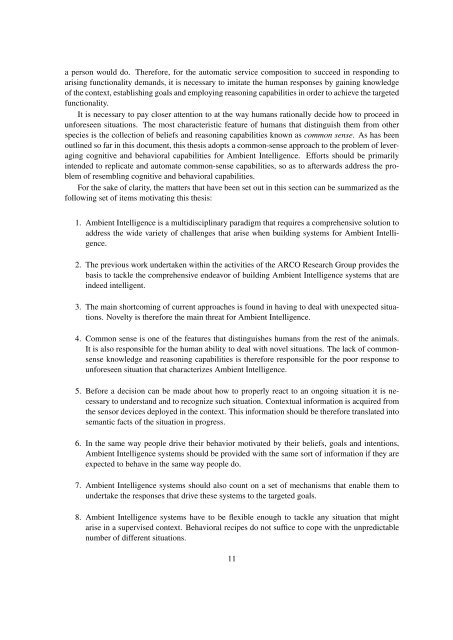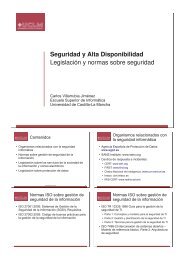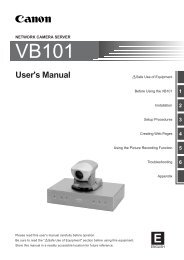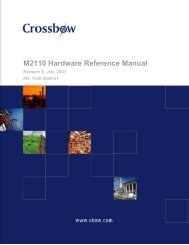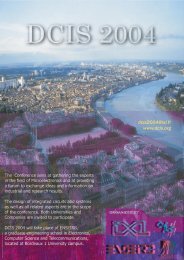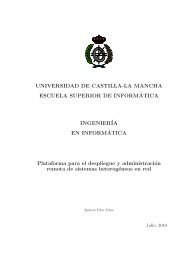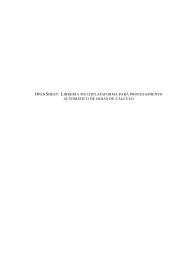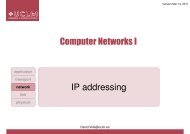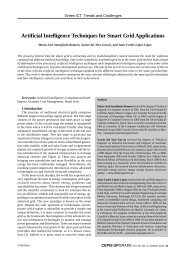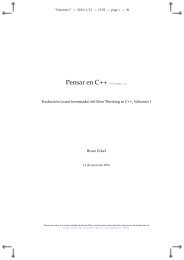MarÃa José Santofimia Romero - Grupo ARCO - Universidad de ...
MarÃa José Santofimia Romero - Grupo ARCO - Universidad de ...
MarÃa José Santofimia Romero - Grupo ARCO - Universidad de ...
You also want an ePaper? Increase the reach of your titles
YUMPU automatically turns print PDFs into web optimized ePapers that Google loves.
a person would do. Therefore, for the automatic service composition to succeed in responding toarising functionality <strong>de</strong>mands, it is necessary to imitate the human responses by gaining knowledgeof the context, establishing goals and employing reasoning capabilities in or<strong>de</strong>r to achieve the targetedfunctionality.It is necessary to pay closer attention to at the way humans rationally <strong>de</strong>ci<strong>de</strong> how to proceed inunforeseen situations. The most characteristic feature of humans that distinguish them from otherspecies is the collection of beliefs and reasoning capabilities known as common sense. As has beenoutlined so far in this document, this thesis adopts a common-sense approach to the problem of leveragingcognitive and behavioral capabilities for Ambient Intelligence. Efforts should be primarilyinten<strong>de</strong>d to replicate and automate common-sense capabilities, so as to afterwards address the problemof resembling cognitive and behavioral capabilities.For the sake of clarity, the matters that have been set out in this section can be summarized as thefollowing set of items motivating this thesis:1. Ambient Intelligence is a multidisciplinary paradigm that requires a comprehensive solution toaddress the wi<strong>de</strong> variety of challenges that arise when building systems for Ambient Intelligence.2. The previous work un<strong>de</strong>rtaken within the activities of the <strong>ARCO</strong> Research Group provi<strong>de</strong>s thebasis to tackle the comprehensive en<strong>de</strong>avor of building Ambient Intelligence systems that arein<strong>de</strong>ed intelligent.3. The main shortcoming of current approaches is found in having to <strong>de</strong>al with unexpected situations.Novelty is therefore the main threat for Ambient Intelligence.4. Common sense is one of the features that distinguishes humans from the rest of the animals.It is also responsible for the human ability to <strong>de</strong>al with novel situations. The lack of commonsenseknowledge and reasoning capabilities is therefore responsible for the poor response tounforeseen situation that characterizes Ambient Intelligence.5. Before a <strong>de</strong>cision can be ma<strong>de</strong> about how to properly react to an ongoing situation it is necessaryto un<strong>de</strong>rstand and to recognize such situation. Contextual information is acquired fromthe sensor <strong>de</strong>vices <strong>de</strong>ployed in the context. This information should be therefore translated intosemantic facts of the situation in progress.6. In the same way people drive their behavior motivated by their beliefs, goals and intentions,Ambient Intelligence systems should be provi<strong>de</strong>d with the same sort of information if they areexpected to behave in the same way people do.7. Ambient Intelligence systems should also count on a set of mechanisms that enable them toun<strong>de</strong>rtake the responses that drive these systems to the targeted goals.8. Ambient Intelligence systems have to be flexible enough to tackle any situation that mightarise in a supervised context. Behavioral recipes do not suffice to cope with the unpredictablenumber of different situations.11


